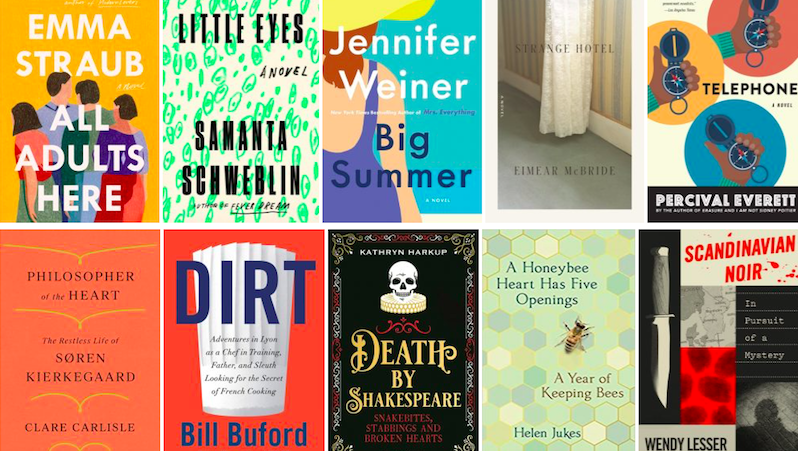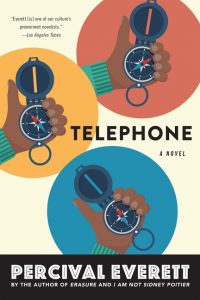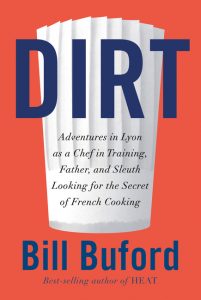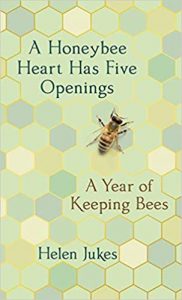
Emma Straub’s All Adults Here, Samanta Schweblin’s Little Eyes, Percival Everett’s Telephone, and Jennifer Weiner’s Big Summer all feature among the Best Reviewed Books of the Week.
1. All Adults Here by Emma Straub
7 Rave • 7 Positive
“… bigly entertaining … ‘Literary sunshine’ is a good way to think of Straub’s work. Her writing and tone are consistently bright and straightforward; her approach to character is warm and generous. Although essentially comic, Straub’s novels don’t avoid some of life’s harsh challenges. All Adults Here touches on fraught topics like coming out, gender identity, marital infidelity, abortion and predatory behavior, all while maintaining a feel-good mood that suggests most things will work out in the end … The main pleasures of All Adults Here come from Straub’s wry comic instincts and her gimlet eye for cultural observation … Her wit extends out from the individual characters into a larger commentary on the difficulties of becoming an adult, making this an especially rich addition to the author’s body of work … If Straub resolves a few too many potential crises with cinematic ease, most readers will forgive her. Who among us isn’t in need of a happy ending right now? What could be more welcome than a novel that leaves you feeling optimistic about both the world and the muddle of your own life? Please, bring on the sunshine.”
–Stephen McCauley (The New York Times Book Review)
Watch Emma Straub and Maris Kriezman in conversation here
2. Little Eyes by Samanta Schweblin
2 Rave • 6 Positive • 5 Mixed
“…[a] dark, quick, strangely joyful new novel … I cannot describe the thrill that ran through me when I realized what the premise of this book was. Of course the idea is timely … But what amazes me is how studiously Schweblin shuns this low-hanging fruit, pushing the book’s thematic content into the background and spotlighting instead the intensity and specificity of her characters’ inner lives. I cannot remember a book so efficient in establishing character and propelling narrative; there’s material for a hundred novels in these deft, rich 242 pages … Each story unveils a new implication of the technology, new ways for human beings to love and hurt themselves and others … The writing, ably translated from the Spanish by Megan McDowell, is superb…the sentences snap like a flag in a gale, especially when deployed to evoke small, vivid details … a slim volume as expansive and ambitious as an epic.”
–J. Robert Lennon (The New York Times Book Review)
Read Samanta Schweblin on on writer’s block, Kjell Askildsen, and The Twilight Zone here
3. Big Summer by Jennifer Weiner
3 Rave • 5 Positive
“Weiner takes a breezy romp through online influencer culture, leveling an ‘I see you’ gaze at the Instagram fake-it-till-you-make-it crowd. It’s deliciously fun: frothy entertainment with surprising depth … he plot careens into slightly over-the-top whodunit territory, with a splash of steamy romance … Weiner’s appraisal of Instagram culture, and our fixation with likes and followers, will resonate … Of course, Weiner isn’t the first to be inspired by our collective fixation with social media. But she stands out as implicitly getting it … big fun, and then some. It’s empowering and surprising—a reminder to put down the phone and enjoy each moment for what it is, rather than what it could look like on Instagram.”
–Angela Haupt (The Washington Post)
Read Jennifer Weiner on representations of fatness and the line between affirmation and self-loathing here
4. Strange Hotel by Eimear McBride
1 Rave • 8 Positive • 5 Mixed • 1 Pan
“The accretion of detail, of nuance, of language are at the heart of McBride’s work. And Strange Hotel, her third book, is a powerful demonstration of her ability to marshal words to peerless effect … This first section is rich in suspense, confidently cut through with an absurd humour … McBride cleverly drip-feeds information, rounding out her character, probing her damaged self and exploring what might have caused her to be roaming the world’s hotels, engaging in an endless stream of one-night stands … the simplicity of the tale belies the deep psychological complexity it explores … McBride’s fractured, fluid indirect style captures the newness of past events, constantly alive in the mind … The language is…tortured—if exquisitely deployed … Once inside the discursive thought process of this woman, her sadness, trauma, loneliness and grief come fully alive … Strange Hotel is a finely controlled, complex and emotionally absorbing novel that manages to burrow deep into the heart of something essential about the human experiences of love and loss. That’s quite an achievement in so short a work.”
–Karl Wilkinson (The Financial Times)
Read an excerpt from Strange Hotel here

5. Telephone by Percival Everett
2 Rave • 5 Positive • 1 Mixed
“I happily read whatever Percival Everett writes—over 30 books, to date—not because I will assuredly love every single effort, but because the books always feel like an encounter with substantive, playful thinking. Sometimes, almost indifferently, one of the novels turns out to be truly exceptional and memorable, and confuses me in the best possible way—in the way that makes it endure in my mind, so that I find I’m still thinking about it in an idle moment on a subway, or while walking up stairs…Telephone is one of these standouts … the way that even the darkest of stories serves as a sanctuary for Wells is surprising and moving. Everett pulls off a gently tremendous technical feat with the accumulated little slips out of the present situation. Each reader will make of her version of the ending what she will. For this reader, the reveries and exits accumulated such that the final and longest slide into the wilderness made the turn to the closing pages sad, affecting and marvelous.”
–Rivka Galchen (The New York Times Book Review)
**
1. Philosopher of the Heart: The Restless Life of Søren Kierkegaard by Clare Carlisle
3 Rave • 5 Positive • 7 Mixed
“Clare Carlisle, in her sparkling, penetrative new biography…explains how Kierkegaard ran against the philosophical grain of his time … Carlisle abandons standard chronology in favor of a three-part study … With this unconventional structure—a fittingly oblique approach for a famously dialectical man—Carlisle is better able to crack open the philosopher’s life: What we get is a panorama of sorts … Carlisle does not sacrifice intellectual rigor for the sake of this larger picture. Her work is demanding in its comprehensiveness … Carlisle’s book is an essential guide to those beginning or reembarking on their Kierkegaard journey.”
–Sophie Madeleine Dees (The Washington Post)
Read a conversation with Sheila Heti, Noreen Khawaja, and Clare Carlisle on Kierkegaard here

2. Dirt: Adventures in Lyon as a Chef in Training, Father, and Sleuth Looking for the Secret of French Cooking by Bill Buford
5 Rave • 2 Positive • 1 Mixed
“…may well be an even greater pleasure than its predecessor … most enjoyable (for us, if not for him) are the apprenticeships in which he sets out to master the five mother sauces, bake the perfect baguette and construct the same misleadingly named ‘duck pie’ by which one year’s candidates for the Meilleurs Ouvriers de France (a kind of culinary knighthood) were judged … The book’s dust jacket breathlessly proclaims it as ‘the definitive account of one of the world’s great culinary cultures,’ but Dirt is something better: a delightful, highly idiosyncratic exploration of how, as Buford puts it, ‘a dish is arrived at not by following a set of instructions but by discovering everything about it: the behavior of its ingredients, its history and a quality that some chefs think of as its soul.'”
-Lisa Abend (The New York Times Book Review)
Read an excerpt from Dirt here
3. Death by Shakespeare: Death By Shakespeare: Snakebites, Stabbings and Broken Hearts by Kathryn Harkup
4 Rave • 3 Positive
“Harkup’s entertaining Death by Shakespeare: Snakebites, stabbings and broken hearts uses Shakespeare as the lens to understand the physiology of death in pre-modern times. She is relentlessly, and sometimes illuminatingly, literal … Death by Shakespeare is pleasingly visceral … Harkup’s untroubled method toggles between real bodies and their fictional presence on stage. Some of the Shakespearean material is a little uncertain … Death in Shakespeare is often encountered as gruesomely bodily and darkly comic, rather than as meaningful or sublime: more Hammer than hamartia. Harkup’s enjoyable and informative survey presents this somatic Shakespeare for the Horrible Histories generation.”
–Emma Smith (Times Literary Supplement)

4. A Honeybee Heart Has Five Openings by Helen Jukes
2 Rave • 3 Positive • 1 Mixed
“…a surprising book, even an astonishing one, overcoming all those initial concerns in its luminously honest and affecting first chapter. Jukes is a gloriously gifted writer and her book ought to become a key text of this bright moment in our history of nature writing. I was reminded of William Fiennes’s The Snow Geese and Amy Liptrot’s The Outrun, but these resonances should not obscure the uniqueness of a book that quietly, beautifully, rewired my heart as I read it … The brilliance of Jukes’s memoir is the way that it uses the image of the hive as a metaphor for so much else going on in the book. It’s rare to find an author who demonstrates such respect for her readers’ intelligence—the parallels and affinities are allowed to accrete gradually, subliminally, so that it’s only at the end that we recognize that a book that seemed to be about beekeeping is actually a meditation on solitude and friendship, on urban existence, on the condition of a generation … It was Coleridge who said ‘Everyone should have two or three hives of bees;’ everyone should also own A Honeybee Heart Has Five Openings, which moved and delighted me more than a book about insects had any right to.”
–Alex Preston (The Guardian)
5. Scandinavian Noir: In Pursuit of a Mystery by Wendy Lesser
2 Rave • 3 Positive
“Lesser isn’t here to win converts, but even those unmoved by its subject will thrill to the book, a beautifully crafted inquiry into fiction, reality, crime and place … The book’s first half…is a spellbinding long essay in which Lesser tells us what she has learned in four decades of reading Scandinavian noir … Her engagement with the source material, hundreds of titles’ worth, is rigorous yet playful. She’s interested in the art on the walls in the characters’ homes, as well as the psychology behind the books’ most frequent themes—children in danger, female sexuality, the political ramifications of immigration … She manages to interview several real-life police detectives, while also seeing the region’s museums, castles and tourist attractions. It’s charming and illuminating, if not quite equal to the brilliance of the first section. Perhaps when it comes to fiction and reality, what we need most are critics like Lesser, who can dissect the former with the tools of the latter.”
–Kate Tuttle (The New York Times Book Review)
Read an excerpt from Scandinavian Noir here

